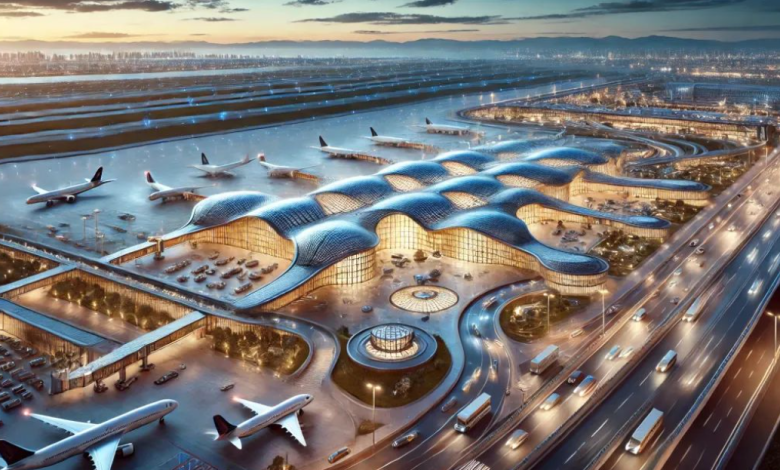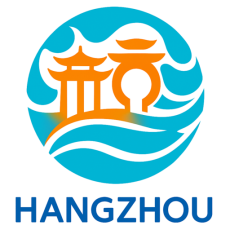
Hangzhou Xiaoshan International Airport (HGH) is the primary airport serving Hangzhou, the capital of Zhejiang Province, and one of the busiest airports in China. Whether you’re visiting for business, leisure, or transit, this comprehensive guide will help you navigate the airport smoothly.
In this guide, we’ll cover:
✔ Terminal Layout & Facilities
✔ Transportation to/from the Airport
✔ Flight Check-in & Security Procedures
✔ Dining & Shopping Options
✔ Nearby Hotels & Transit Tips
✔ Useful Travel Advice
Let’s dive in!
1. Hangzhou Airport Overview
IATA Code: HGH
Location: Xiaoshan District, about 27 km (17 miles) from downtown Hangzhou
Terminals: 3 (T1, T2, T3 – with T3 being the newest and largest)
Annual Passengers: ~40 million (pre-pandemic)
Airlines Served: Domestic & international, including China Eastern, Air China, Emirates, and more
Hangzhou Airport is modern, clean, and efficiently managed, making it a pleasant travel hub.
2. Terminal Layout & Facilities
Terminal 1 (T1)
- Mainly handles domestic flights (some budget airlines).
- Smaller and older than T2/T3 but still functional.
- Basic amenities: ATMs, convenience stores, and a few eateries.
Terminal 2 (T2)
- Services both domestic and international flights.
- More dining and shopping options than T1.
- Lounges available for premium passengers.
Terminal 3 (T3) – The Newest & Largest
- Opened in 2022, designed for future growth.
- State-of-the-art facilities, including automated check-in kiosks.
- Expanded duty-free shopping and premium lounges.
Key Facilities Across All Terminals:
✅ Free Wi-Fi (requires Chinese phone number or passport registration)
✅ Currency Exchange & ATMs (available in T2 & T3)
✅ Luggage Storage (for transit passengers)
✅ Prayer Room & Nursing Rooms
✅ VIP Lounges (accessible via airline status or paid entry)
3. Transportation to/from Hangzhou Airport
A. Metro (Subway) – Fast & Affordable
- Line 1 (Xiaoshan Airport Line) connects directly to downtown Hangzhou (approx. 50 min to West Lake).
- Fare: ~¥8-12 ($1-2 USD).
- Operating Hours: ~6:00 AM – 10:30 PM.
B. Airport Shuttle Buses
Several routes operate to key locations:
- Downtown Hangzhou (to Wulin Square, Railway Station) – ¥20 ($3).
- Nearby Cities (e.g., Shaoxing, Ningbo) – ¥50-100 ($7-15).
C. Taxi & Ride-Hailing (Didi)
- Taxi Fare to Downtown: ~¥100-150 ($15-22).
- Didi (China’s Uber): Often cheaper than taxis.
D. Private Transfers & Car Rentals
- Many hotels offer private pick-up services.
- Car rental desks are available in arrivals (Hertz, Avis, etc.).
E. High-Speed Rail (HSR) Option
- From Hangzhou East Railway Station, you can take a bullet train to Shanghai (1h), Nanjing (2h), or Beijing (5h).
4. Flight Check-in & Security Procedures
Check-in Tips:
- Online Check-in: Available 24-48 hours before departure (recommended to save time).
- Baggage Drop: Self-service kiosks in T3 speed up the process.
- International Flights: Arrive at least 3 hours early due to extra security checks.
Security Screening:
- Liquids must be under 100ml and placed in a clear bag.
- Laptops & electronics must be separately scanned.
- Fast Track: Available for business/first-class passengers.
5. Dining & Shopping at Hangzhou Airport
Restaurants & Cafés
- Local Cuisine: Try Hangzhou dishes like Dongpo Pork at airport restaurants.
- International Options: Starbucks, KFC, Burger King, and Costa Coffee.
- Premium Lounges: Serve buffet-style meals (access via Priority Pass or airline status).
Shopping & Duty-Free
- Duty-Free (T2 & T3): Perfumes, alcohol, cosmetics, and luxury brands.
- Souvenirs: Hangzhou tea (Longjing), silk scarves, and handicrafts.
- Convenience Stores: 7-Eleven, WHSmith (for last-minute snacks).
6. Nearby Hotels & Transit Accommodation
Inside the Airport:
- Hangzhou Airport Hotel (T1) – Basic but convenient for early flights.
Nearby Hotels (5-10 min by shuttle):
- Pullman Hangzhou Airport (4-star, free shuttle)
- Holiday Inn Hangzhou Xiaoshan (good for business travelers)
For Long Layovers (6+ hours):
- Consider visiting Xixi Wetland Park (30 min by taxi) or Qiantang River (20 min away).
7. Useful Travel Tips for Hangzhou Airport
✔ Language Barrier: Most signs are in English & Chinese, but staff may not speak fluent English. Have your hotel address written in Chinese.
✔ Mobile Payment: Alipay/WeChat Pay are widely accepted (cash is less common).
✔ Visa Policies: Check if you need a transit visa (24/144-hour visa-free transit available for some nationalities).
✔ Weather Delays: Hangzhou has frequent rain & fog in spring/winter—check flight statuses.
Final Thoughts
Hangzhou Xiaoshan International Airport is well-organized, modern, and traveler-friendly. With efficient transport links, good dining options, and helpful facilities, it ensures a smooth journey whether you’re flying domestically or internationally.
Plan ahead, arrive early, and enjoy your trip to Hangzhou!




